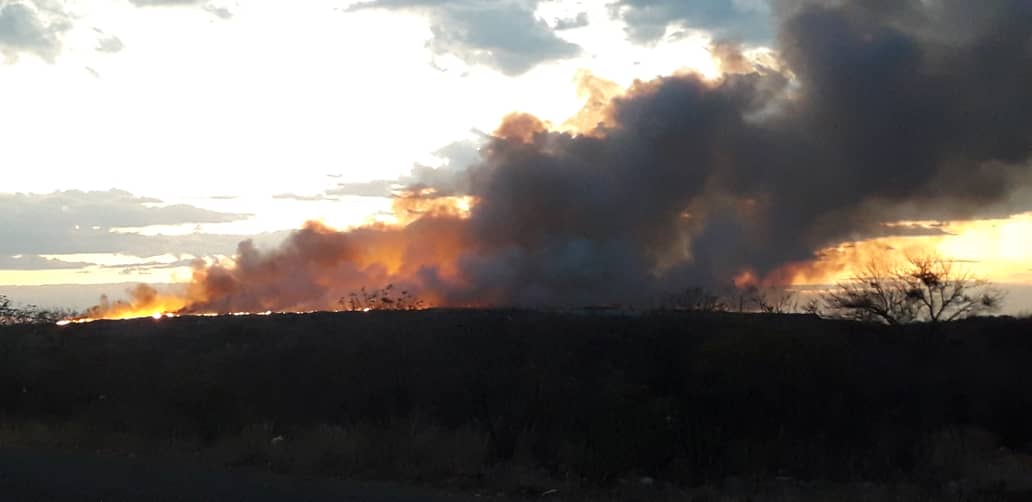The Health Services Department has urged Bulawayo City Council (BCC) to prioritise upgrading and maintaining the Richmond Sanitary Landfill rather than relocating it, citing significant cost and time constraints.
This recommendation is contained in a report by the department, seen by CITE, which highlights critical equipment shortages and fire hazards at the landfill.
The report indicates that these issues have led to a sharp increase in the frequency and severity of landfill fires, with 109 incidents recorded between 2021 and 2024 alone.
The fires have been attributed to waste salvagers especially those dealing in metal who deliberately set the landfill on fire so that they could easily collect metal recyclables.
Residents of Cowdray Park have expressed concerns about the smoke emanating from the site, claiming it poses a risk to their health. For years, they have lobbied the local authority for permanent solutions.
The Richmond Landfill, commissioned in 1994, was originally designed with a 20-25 year lifespan. However, it continues to operate due to economic challenges that have delayed the development of alternative disposal sites.
Although the landfill is estimated to have another 10-15 years of use, inadequate maintenance and equipment failures have hindered proper waste management, including regular compaction, confinement, and covering of waste.
These deficiencies have contributed to the landfill fires, as decomposing organic waste produces methane gas, which can spontaneously combust, particularly in high temperatures.
In recent years, machinery breakdowns have reduced maintenance to just twice a week, far below the daily standard needed for safe landfill management.
The Health Services Department’s report presents two options: relocating the landfill or improving its operations at the Richmond site.
While proponents of relocation argue that moving the landfill away from residential areas would reduce health and environmental risks, the estimated cost of over $2.8 million for infrastructure alone makes this option financially unfeasible within the current budget. Moreover, developing a new landfill site would take at least three years, with operations unlikely to commence before 2029, assuming funding is secured in the 2026 budget.
“To construct a new landfill site, Council requires a minimum of 36 months. This timeline allows for a full Environmental Impact Assessment and the construction of necessary infrastructure, including roads, office buildings, water supply, and sewer reticulation. Assuming funds are readily available, a new landfill could realistically be commissioned by early 2028. However, given that no budget has been allocated for this in 2025, the most realistic date is 2029. Until then, the need to dispose of waste will persist. Council must address this ongoing challenge,” said Dr. Edwin Sibanda-Mzingwane, Health Services Director.
The alternative, recommended by the Health Services Department, is to improve operations at the Richmond Landfill by acquiring essential equipment and making necessary repairs. This would include purchasing a landfill compactor, bulldozer, front-end loader, and two tipper trucks. These upgrades, along with the development of new landfill cells in Phase B of the Richmond site, would cost an estimated $1.7 million—significantly less than the relocation option.
“If the landfill is equipped with functioning machinery, fires can be avoided. Between 1994 and 2020, when the landfill had adequate machinery, virtually no fires occurred. The daily processes of confinement, compaction, and covering effectively prevented fires. Bulawayo’s landfill was once regarded as the country’s model for waste disposal, and cities and academics frequently visited to learn from it,” said Dr. Sibanda-Mzingwane.
The department also explored alternative waste management strategies, such as waste-to-energy projects that convert waste into renewable energy. Proposed by private sector partners, these projects could process up to 90% of the landfill’s solid waste, reducing the volume of waste and extending the operational period of the landfill by 30 years or more.
The department has urged the council to secure funding for the necessary equipment and repairs to mitigate environmental hazards and improve waste management practices while long-term solutions are developed.

